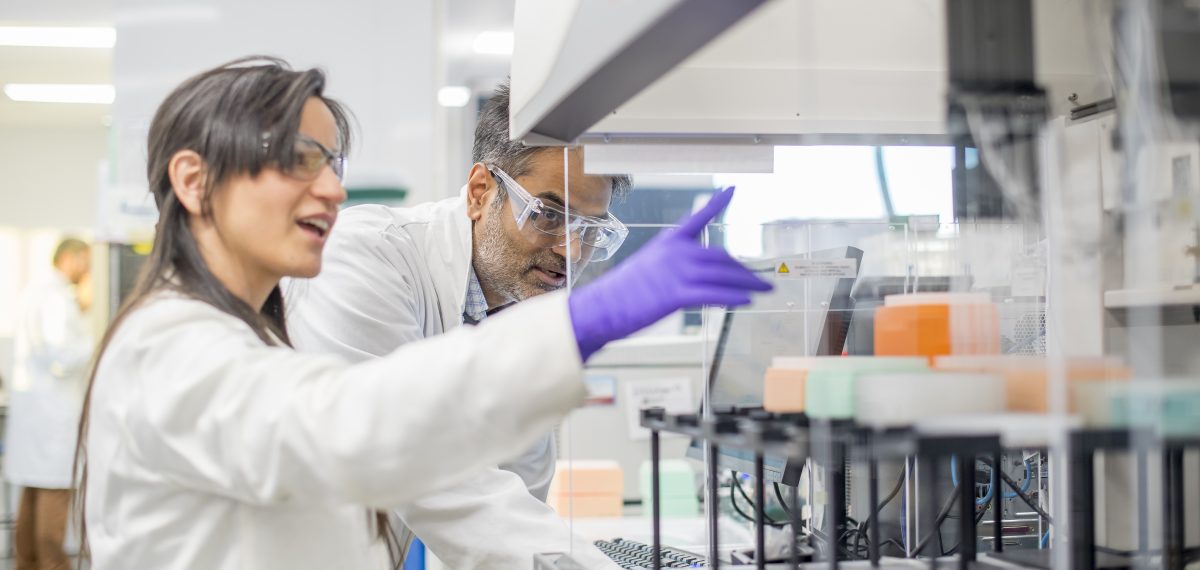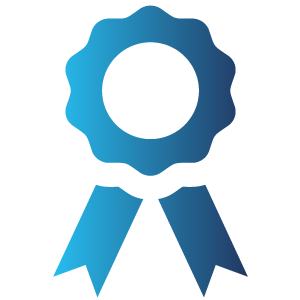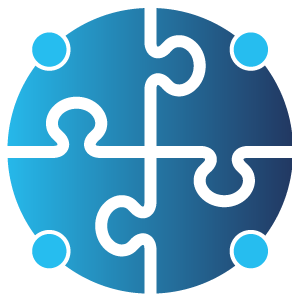5 key things to look for in a drug discovery CRO partnership
In today’s world of collaborative drug discovery, where in-house science is regularly combined with CRO expertise, it’s really important to choose the right partners. We asked Sygnature’s Director of Oncology Drug Discovery, Dr Allan Jordan, to share his thoughts on this topic based on his extensive experience from key roles at various biotechs and as Head of Chemistry at the Cancer Research UK Manchester Institute.
Before I joined Sygnature, I spent almost ten years on ‘the other side’. I was running chemistry teams on a variety of drug discovery programmes, almost all of which had some element of outsourced support.

During my two years at Sygnature, it’s been educational to see both sides of these collaborations. It’s also given me a somewhat uncommon insight into what each partner is looking for in a collaboration between a drug discovery company and a CRO.
Distilling down my previous outsourcing experiences (both positive and the not-so-positive!) suggests five key areas that I believe are pivotal to success.
1. Culture
A good fit between the two cultures is essential. A good CRO should have a pro-active, collaborative and problem-solving culture that complements the team ethos of the client.
This is particularly valuable when a project hits a roadblock, and scientists can work collaboratively to solve problems rather than merely asking for further direction. And a CRO whose scientists are prepared to run problems past their colleagues on different projects for ideas – suitably generalised, of course – is much more likely to find a quick and innovative solution than one where the scientists are more siloed on their own projects.
 2. Integrity
2. Integrity
In the real world, not all experiments work, and things inevitably go wrong. Rather than being defensive or secretive, the ideal CRO will take ownership of any problems and flag up any issues they spot, whether it is a fundamental issue with the project, or just simple human error that has been made.
Sometimes, though, problems run more deeply, and it’s important to find a partner for whom the bottom line is not the only driver – it would be simpler (and more profitable) to continue a project that is just not going to make it to the clinic, and not discuss the difficult matter of halting a project that our customers are understandably passionate about.
But, in some cases, that is the right and proper thing to do. It’s better for their investors, and ultimately for patients, as it allows focus on activities more likely to deliver benefit. It’s about making the right data-led decision, not the easiest or most attractive one. And having the conscience to make those difficult decisions ultimately instils a sense of trust and integrity. This trust relationship is vital to project success. If our data can’t be trusted, or there are concerns around transparency, we can’t make good decisions on our drug discovery projects.
 3. Quality, integrated science
3. Quality, integrated science
The best CROs will have an experienced, imaginative team of scientists, full of bright ideas about what might work and what is less likely to succeed. They invest in staff training, development, and capabilities. They don’t assign newly qualified or inexperienced staff straight into key roles on projects before they have sufficient experience.
Teams with a wide range of experience among the scientists tend to come up with many more good ideas. Again, a culture of openness and rigour is far more valuable to the project team than siloed thinking. But alongside high quality and well-trained staff, equally important is the continued implementation and development of the latest scientific technologies and thinking to support research at the cutting edge of drug discovery.
 4. Effective data sharing
4. Effective data sharing
It is no good generating data if they cannot be easily accessed. A non-searchable pdf file may communicate results, but it would be far more useful if those results could be indexed and searched more effectively, both now and in the future.
If the results can be stored and archived in a searchable electronic format, ideally integrated within an in-house electronic lab notebook or database system, they will become part of the knowledge base for making future good decisions and serve as a useful repository as the project teams change and evolve over time.
 5. Good decision-making
5. Good decision-making
Drug discovery is not just about making and testing compounds. At its heart, it involves making the right decisions about what to try or make next, and what are the next critical steps for progression.
These decisions are underpinned by the data collected from experiments, and without all these quality datapoints – positive and negative – it is unlikely that the optimal decision can be made. But they’re also underpinned by shared experience across many previous drug discovery projects, allowing learnings to be incorporated and lessons learnt to be readily incorporated.
The very best CROs will not only collect the highest quality data and share them in accessible formats, but also interpret and contextualise data, enhancing their customer’s ability to make the right choices to drive programmes toward clinical evaluation.
In the end it’s about getting medicines to patients.
Ultimately, we all want to help patients by discovering safe, effective new medicines, and moving a project from an idea into the clinic as quickly as possible. At Sygnature, we believe that we are more likely to find high-quality medicines in a timely fashion if there is a holistic, integrated partnership in place between a drug discovery company and a CRO which meets all these five key criteria.
We believe strongly in staff training and mentorship, high quality science and data generation, and the interactive sharing, contextualisation and open, critical discussion of these data. We actively engage our highly experienced scientists in leading this decision making, but also in the training and mentoring of the next generation of drug hunters. By sharing the comprehensive learnings, both from unsuccessful endeavours and those that have allowed us to deliver 17 drugs into human clinical trials and another 16 into pre-clinical development for our clients since 2014, we’re confident that we are well positioned to deliver many more innovative medicines against increasingly challenging drug discovery targets.
Put simply, we believe in helping our customers deliver the best possible decisions across their projects, to add value to their activities, and to enable their success, as we jointly strive to deliver the next generation of medicines to patients.
We continually engage with our industry on a range of drug discovery topics. If you would like to discuss drug discovery, our capabilities or what we are about, then we’d love to hear from you. You can get in touch by using any of the contact forms.

